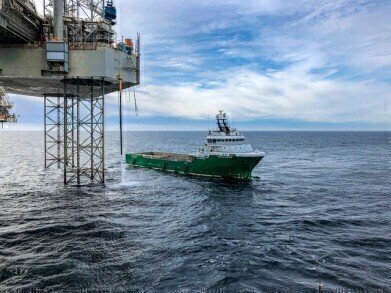Safety
Why is Safety Culture Important?
May 27 2021
More than just a set of procedures and protocols, experts maintain that gold-standard workplace health and safety should be treated as a culture. Investigations into catastrophic incidents such as Deepwater Horizon reveal a direct relationship with safety culture, a term that describes a set of individual and collective attitudes towards occupational health and safety (OHS). The cost of lacklustre safety culture can be enormous, with many major accident investigations citing safety culture deficiencies as major causes.
Defining safety culture
While productivity and profits are both top priorities for energy companies, nothing is more important than the safety and wellbeing of personnel. So, what exactly is safety culture? The concept was coined in the 1980s when the Advisory Committee for Safety in Nuclear Installations (ACSNI) launched an investigation into the human factors behind the Chernobyl Disaster. The organisation was one of the first to establish a link between safety performance and culture. It launched safety culture onto the global stage and established it as crucial component of workplace health and safety.
“The safety culture of an organisation is the product of individual and group values, attitudes, perceptions, competencies, and patterns of behaviour that determine the commitment to, and the style and proficiency of, an organisation’s health and safety management,” read a report issued by the ACSNI. “Organisations with a positive safety culture are characterised by communications founded on mutual trust, by shared perceptions of the importance of safety and by confidence in the efficacy of preventive measures.”
What happens when safety culture is lacking?
Loss of life is the biggest consequence of safety culture deficiencies. Failure to cultivate a robust safety culture can also result in huge productivity and profitability losses, as well as damage the reputation of a company.
The 2010 Deepwater Horizon catastrophe not only claimed the lives of 11 employees but also cost BP an eye-watering US$65 billion. The resulting spill was also considered one of the worst environmental disasters in history. Investigations into the explosion and fire found that the disaster was not only caused by technical failure and negligence, but an overall breakdown in safety culture.
Want to know more about the acute importance of safety culture in the oil and gas sector? Tom Lynch, an energy industry expert and independent analytical consultant, explores the topic further in “Safety Culture” – What is it and why should you pay attention to it?
Digital Edition
PIN 25.1 Feb/March
March 2024
In This Edition Safety - The technology behind the ION Science Tiger XT - Safety with ammonia and LOHCs as hydrogen carriers Analytical Instrumentation - Discussion on new tribology te...
View all digital editions
Events
Apr 28 2024 Montreal, Quebec, Canada
Apr 30 2024 Birmingham, UK
May 03 2024 Seoul, South Korea
May 05 2024 Seville, Spain
May 06 2024 Riyadh, Saudi Arabia


.jpg)















